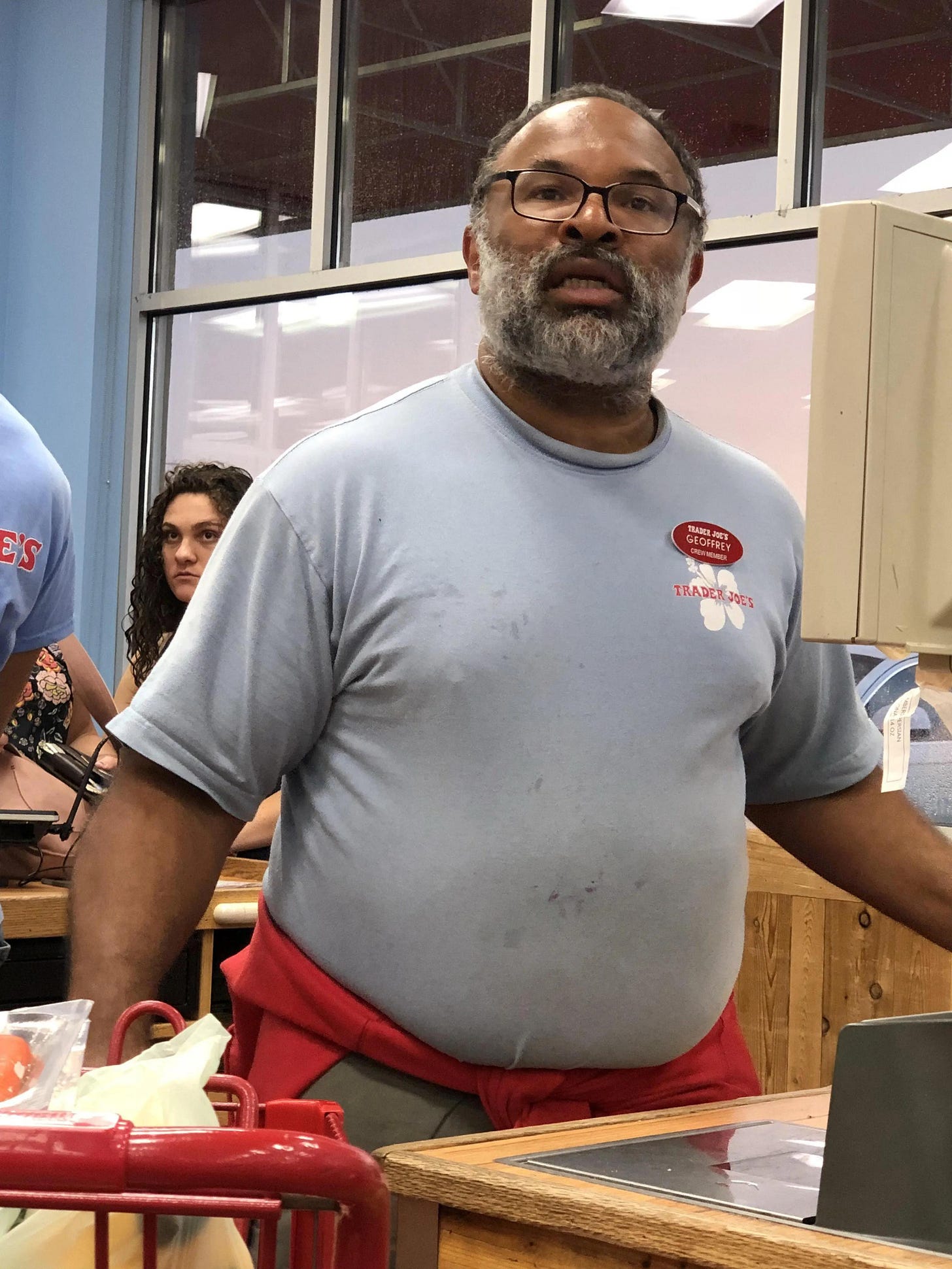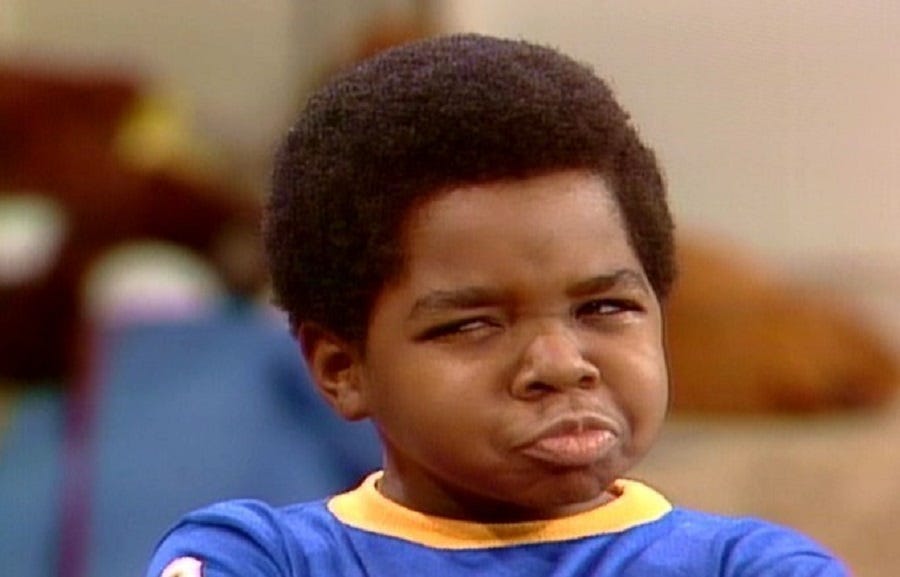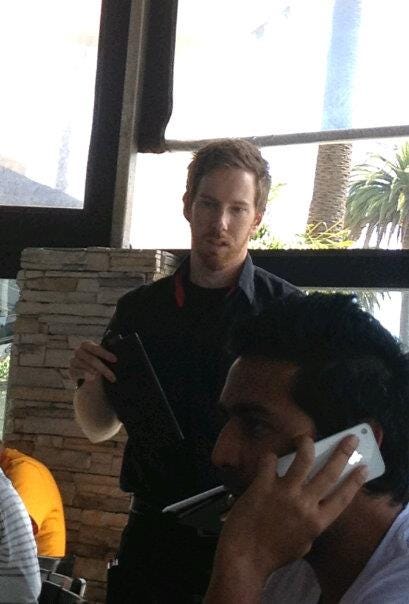What Price for Art?
The Struggles of Being a Working Writer (and by that I mean I have to work in order to afford to be able to write)
Back when he was still alive, Gilbert Gottfried hosted my favorite podcast, Gilbert Gottfried’s Amazing Colossal Podcast. It was a great show, with his cohost, the incomparable Frank Santopadre, doing all of the heavy lifting, and Gilbert running in occasionally and lobbing grenades about what trained chimps were really used for in 1940s Hollywood, Cesar Romero’s produce-laden love life, and what actors were secretly (or not so secretly) antisemitic.
After Gil’s untimely passing, Frank was off the air for three years, but I’m pleased to report that he has recently returned to the podcast RSS feeds with his new endeavor, Fun For All Ages with Frank Santopadre.
Like GGACP, Frank is continuing down the path of retro pop culture kitsch, but focusing not on individual talents as they did in GGACP, but rather on big-picture items, such as old amusement parks, commercials, fast-food places that are no longer with us, and atomic-age movies like Them!
The other week, Frank had on a couple of guests, and they boiled down the world of old game shows. They brought up a moment from an early 2000s game show called Russian Roulette, which aired on the Game Show Network for two years.
Like most quiz shows, players were asked questions, and when they couldn’t answer, they had to pull a lever that spun lights on one of six platforms where the players stood. If the lights landed on the player’s platform, a trap door opened, and the contestant fell through, banished to a world of failure beneath the stage.
The particular moment the guests on FFAAwFS were mentioning was the appearance of Gary Coleman.
Gary Coleman was most famous for his role as Arnold in Diff’rent Strokes, a delightful old show about a rich white guy who ends up adopting two young Black boys who needed a family. Coleman was the breakout star, getting all the good lines and delivering the iconic, “What you talkin’ ‘bout, Willis?”
However, Coleman’s star didn’t shine forever. He committed the one unforgivable sin all child actors commit: he grew up.
Older Gary Coleman wasn’t nearly as cute as young Gary Coleman. And despite earning millions as a youth, Coleman’s parents, agents, and managers abused his fortune, and adult Gary was left without money.
The job offers dried up, as did any remaining money he had, and this led to problems like alcoholism (which wasn’t a good habit for someone with severe kidney issues—specifically, focal segmental glomerulosclerosis). Coleman bounced around, taking on odd jobs and desperately trying to make a comeback. He did celebrity boxing. He worked as a security guard. He did what he had to do, struggling the whole time.
When Coleman was asked to participate in Russian Roulette to raise a pittance for charity (as these shows often do), his agents called the producers and asked if Gary could keep the money for himself if he won—he was broke and needed it.
I don’t know if Coleman got the money or not, but he was a good sport, anyhow. He played the game and was sacrificed to the indignity of the trapdoor in front of Kato Kaelin, of all people.
Coleman’s story is not Hollywood’s only rags-to-riches story. And it won’t be the last. In a world where predators swim freely and seek to fatten themselves on the labors of others, this will always be the way.
But art has a price.
More than 96 percent of everyone on SAG-AFTRA’s roll sheets does not make a living solely from acting.1 Most of them are holding down one or two jobs to make ends meet between acting gigs that often pay scale.
Go through any movie on any streaming service right now, and you’ll see a hundred names after the five or six stars, and you won’t know any of them. These are working actors. These are individuals who are fighting to make their dream of working in television and film a reality. Most of them will spend their entire career at audition after audition, perhaps occasionally landing a choice supporting role in something, but never cresting the hill that will let them live without a second job.
Remember when Geoffrey Owens, who often stole scenes on The Cosby Show as Elden, the guy who married Heathcliff Huxtable’s oldest daughter, Sondra? Remember when he was working at Trader Joe’s?

Or remember the Sherminator from the American Pie movies? Chris Owen was photographed at his day job as a waiter at a sushi restaurant in Los Angeles, despite having had a memorable youth as a child actor, including a turn in Major Payne, one of my all-time favorite movies.
The rat race is brutal. Even guys who have worked steadily in television, like Bob Clendenin (who many will know was the primary inspiration for the character of Abe in my Abe & Duff Mystery Series), still do things other than acting to make ends meet. Bob runs a theater workshop and teaches acting classes. He does what he has to in between getting shots at guest spots in Bill Lawrence productions or commercial work.
TV money is fleeting, and even the residuals ain’t what they used to be.
Everyone has a podcast now. Everyone is writing. Everyone is trying to get content on the internet to produce income. (Whatever content works for you—I’m not here to judge.) Everyone is hustling. Two or three jobs. Side incomes. Passive incomes. Drop-shipping companies. Refinishing furniture. Thrifting and reselling on eBay. People are busting humps to make paper.
I’m in better shape than a lot of people, but I feel like I am still out here treading water in a storm.
The struggle to maintain your sanity in this madness, in the desire to craft a living by creating things, is real. And it’s difficult. And most of us won’t be successful at it.
One of the biggest challenges is time. Time is a finite resource, and writing requires a large swath of it.
I just got a message from an old student of mine this very morning. He was lamenting about how he wanted to create, but his job (he is currently working for the US Postal Service) takes up nine to ten hours of his day. He’s walking miles upon miles during his shift, so by the time he gets home, he barely has enough energy left to do some laundry and make dinner before collapsing in front of the TV for an hour or two before he has to do it all over again the next day.
My advice to him was this: write for fifteen minutes. That’s all you need. Set aside fifteen minutes each day only for writing. Open the Word document, hit a timer, and sprint. Type as much as you can. At the end of fifteen minutes, go back to the real world.
You will still have created, and your novel is fifteen minutes closer to being done than it was at the beginning of the day, and that’s not nothing.
Eventually, you strive to find that mindset where the creation of something is the driving force behind your day, and everything else is just a distraction that keeps you from reaching that driving force.
But that’s easier said than done.
Work, commuting, relationships, family, basic living necessities like grocery shopping and occasionally running the vacuum, and maybe doing that stack of dishes that should have been done three days ago. They are greedy little time vampires, sucking away at that time for creating, because you can’t forego sleep (as much as I often try to) to write. Sleep catches up to you eventually.2
I bring this all up because it feels like the world has been conspiring against me lately. Last year, I had a decent (though not great) full-time job, but it collapsed in July 2024 when the school closed. Last year, I had my best year for generating income from writing ever. This year, Amazon changed its algorithm and payment practices, which has resulted in a significant reduction in my generated income. Last year, I had three novel editing jobs that paid enough to cover the needed pay gaps that my survival job couldn’t cover. This year, I have had only one minor editing gig come up.
This year, we had a ton of unexpected expenses, what with the dog getting sick back in April (RIP, Eddy—you are still missed), the kid’s college needs, the regular medical bills, the one working vacation we were able to take this year (Bouchercon), and me trying to find a way to get modern medicine to heal the extensor tendonitis in my left foot that is nearly crippling me on a nightly basis. (Side note: still hurts.)
The point is: I need to either find a better full-time job (easier said than done) or take on a second part-time job.
As of now, I’ve had a couple of interviews for full-time positions, but no offers have been extended to me yet. The interviews did help shed light on how difficult the job market in my area is, though. For a first-round phone interview I had the other day, the interviewer told me that he had received the most applications he had ever received for any job posting in the twelve years he had worked in his department. They scaled down 400+ applications to 30 for the first round of interviews, of which I was lucky enough to be one.
I have tentatively accepted a part-time retail position to supplement my current part-time restaurant role, and this new job is scheduled to begin on October 19, unless I receive a full-time offer prior to that date. The cruel irony of this is that instead of having one full-time job that requires 40 hours a week, I’ll be working two part-time jobs, which will result in me working 60 hours a week. That’s 20 hours less of living and writing time I’ll have to myself.
But this is the price of art.
Like any writer, I’d love to live in a world where I could make a living solely through my writing income. But like the vast majority of writers out there, this is an impossibility, particularly at my current position in the creative roll call. I’m invisible. I’m a nobody. Even with 80,000 ebooks sold over the last ten years, I still can’t get agents or publishers to return my calls. So, this is what must be done.
We gotta do what we gotta do, right?
As of now, it is quite possible that 2026 might be the first year I don’t release a new novel since 2015.
But, hey—I had a good run.
I’m not done writing, not by a long shot. However, I will have to slow down, sadly. The books are just not going to be a priority unless I can figure out how to magically move to whatever the mythical “next level” of writing is.
I’ll have to take my own advice: move forward fifteen minutes a day. Maybe thirty minutes if I’m lucky. The books will eventually be finished. It will just be a slower, more drawn-out process.
In the meantime, does anyone need a dude with a master’s degree and twenty years of experience in education?
Will run technical colleges for food, I guess.
Ninety-six percent is the generous percentage, too—I’ve seen reports where that number is higher.
In my younger days, I used to pride myself on my ability to suffer through sleep deprivation. I would often go to the point where I would actually hallucinate from exhaustion. Strangely enough, the thing I would frequently hallucinate—and I have no idea why—was toads of various shapes and sizes. I remember once seeing a bullfrog the size of a basketball on my desk next to my keyboard, and getting frustrated when my hand would pass through it when I tried to pet it. Weird, right?





Keep on fighting the good fight 👊🏼. This is kinda the opposite of what you were talking about…but I was doing a workout video a couple of years ago, and one of the dudes in the background (you know, the guys in the back who just do the exercises) was Jake from State Farm. He’s had a significant upgrade in his situation 😄
I was on a call today and a writer mentioned that they were finally making a living wage (not enough to live on mind you, but a living wage), and I just thought “how?!” We should all be so lucky.
My shoulder’s basically being held together with baling wire and hope, and it’d be nice to rest it for awhile. But my kids gotta eat, so the show must go on…